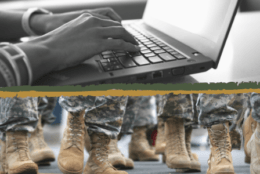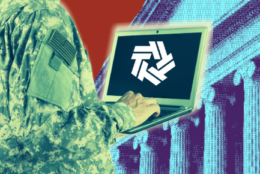Cybersecurity
-
Federal CIO Clare Martorana has been briefing lawmakers about awards and the impact of the Technology Modernization Fund to ensure transparency and accountability.
May 02, 2022 -
In today's Federal Newscast, DHS is ready to expand its cyber bug bounty program after a successful pilot.
April 28, 2022 -
In today's Federal Newscast, Can the government safely and equitably use facial recognition for identity proofing? That's the question the General Services Administration's Technology Transformation Service is asking.
April 27, 2022 -
There’s an unsettling reality that the federal technology community is facing: the SolarWinds and Kaseya breaches could have happened to almost any other company
April 22, 2022 -
The armed services need to expend their numbers of high-ranking cybersecurity and cyber warfare officers.
April 22, 2022 -
At first blush, it might seem like agency chief data officers would be hampered by the move to a “zero trust” cybersecurity posture.
April 21, 2022 -
Vincent Sritapan, the Cyber Quality Service Management Office section chief at the Cybersecurity and Infrastructure Security Agency, said agencies and industry can comment on new guidance documents to establish standard cyber configurations.
April 19, 2022 -
In today's Federal Newscast, there’s a new guide for how to report cyber incidents from the Cybersecurity and Infrastructure Security Agency.
April 18, 2022 -
The White House recently received some expert advice about its signature cybersecurity initiative, namely to get every agency to move to zero trust systems architectures.
April 15, 2022 -
Two new cybersecurity courses developed by the Air Force are available to anyone in the Defense Department.
April 14, 2022 -
For decades, cybersecurity meant securing data and endpoints from any number of threats. But what often got left by the wayside was the human element. The shift to zero trust is an acknowledgement of that.
April 12, 2022 -
Agencies embracing DevSecOps tout its potential to enhance communication, customer experience and IT security at every stage of a product’s lifecycle.
April 11, 2022 -
A lot of the data that government produces needs to be rated; safe to distribute, controlled but unclassified, or maybe secret and classified. That's simplifying this huge but never-ending task. Now the Defense Department has launched a challenge prize program to develop an artificial intelligence approach to automating some of this tedious task.
April 08, 2022 -
Pockets of DoD have proven they can produce world-class code, but there's a lot of work ahead to make agile development the norm, the department's first-ever chief software officer says in an exit interview.
April 08, 2022 -
The plans describe how each agency proposes to adopt a zero trust architecture by the end of fiscal year 2024.
April 06, 2022












